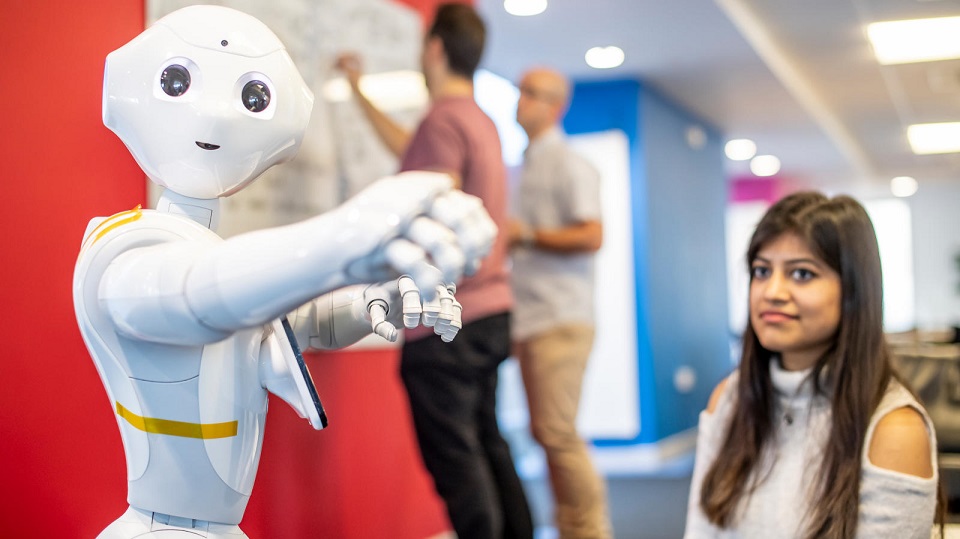As Artificial Intelligence (AI) technology improves, we’ll find ever more creative ways to harness it to improve the way we live, work and play. But we need to progress in a responsible way.
Advances in AI could have a significant impact on society, boosting productivity and global growth. But alongside the opportunities, many are aware of the possible threats, particularly the potentially negative impact on jobs.
If we’re to remain on the front foot, education systems and employers worldwide will need to adapt to ensure that people in the workforce have the skills they need to make the most of the potential benefits advances in AI will bring.
As AI technology improves, we’ll find ever more creative ways to harness it to improve the way we live, work and play. But we need to progress in a responsible way and keep asking crucial questions – what are the risks, what benefits might it bring, and what might be the long-term impact?
Professor Nick Jennings
Professor Nick Jennings is an internationally-recognised authority in the areas of AI, autonomous systems, cyber-security and agent-based computing. He was the UK Government’s first Chief Scientific Advisor for National Security.
His research focuses on developing AI systems for large-scale, open and dynamic environments. In particular, he is interested in how to endow individual autonomous agents with the ability to act and interact in flexible ways, and with effectively engineering systems that contain both humans and software agents.
Professor Jennings has worked on the deployment of systems in domains such as business process management, smart energy systems, defence, telecommunications, sensor networks, disaster response and citizen science.
He is also involved with a number of start-ups including Aerogility, Darktrace, Rebellion Defence, and Reliance Cyber Systems.
Research in numbers
AI will affect up to 40% of jobs worldwide according to the International Monetary Fund (IMF).
The UK AI market is worth more than £16.8 billion, according to the US International Trade Administration, and is expected to grow to £801.6 billion by 2035.
Around one in six UK organisations totalling 432,000 have embraced at least one AI technology – according to UK Government research.
Funders and Partnerships
Professor Nick Jennings has worked with partners and research funders including the below.
Disaster response charity Rescue Global
Professor Jennings worked with Rescue Global to deploy a system of machine learning, information fusion and coordination algorithms to inform their response to the 2015 Nepal Earthquake.
Engineering giants
Professor Jennings worked with Daimler-Chrysler to use negotiation algorithms to efficiently control engine manufacturing production lines, scheduled the repair of aircraft engines with Rolls-Royce, manage complex supply chains with BAE Systems and allocated teams of field engineers to repair tasks with BT.
UK Sport
Professor Jennings used information fusion and co-operation algorithms to assess and predict race conditions for the highly successful 2012 British Olympic sailing team (winners of one gold and four silver medals).
The Centre for Sustainable Energy
Professor Jennings developed assistant agents with UK Sport that accurately analyse and predict home energy use for individuals in fuel poverty. This greater fidelity helped the charity better determine the best intervention for the people they visit.


